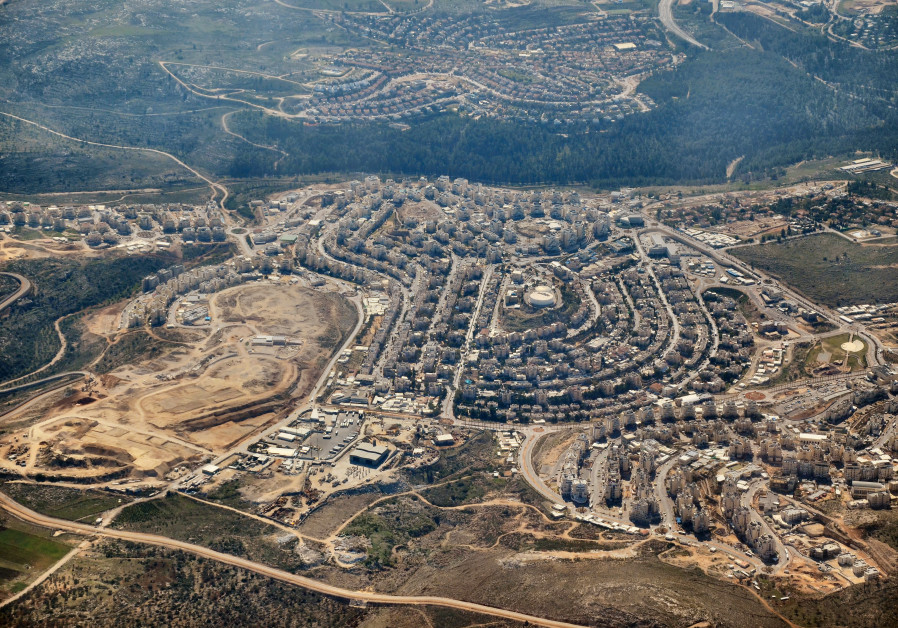Israeli Gov’t: Knesset purview over West Bank not akin to annexation

An arial view of the West Bank settlement Modiin Illit. (photo credit: DVIRRAZ/WIKIMEDIA COMMONS)
The application of Israeli law to the West Bank is not akin to annexation, the government told the High Court of Justice on Tuesday.
“The mere application of a certain Israeli norm [law] to an anonymous place outside the state does not necessarily make that anonymous place part of Israel,” private attorney Harel Arnon said in a legal brief in support of the Settlement Regulation Law.
“The Knesset is not restricted from legislating extra-territorially anywhere in the world, including in the region,” Arnon said. He added that “the Knesset can legislate in Judea and Samaria.”
His brief is the newest government submission in defense of the Settlement Regulation Law, which retroactively legalizes 4,000 settler homes built on private Palestinian land in exchange for monetarily compensating the Palestinian land owners.
One of the key questions in the case, has been the ability of the Knesset to legislate for Area C of the West Bank, which is outside the boundaries of sovereign Israel.
Area C is under Israeli military and civilian rule. Israeli law has been presumed to be inapplicable and as a result the territory is regulated by a series of comparable military laws.
Right-wing politicians have increasingly pushed to apply Israeli law to the West Bank, in what left-wing politicians and the international community has warned is a form of “creeping annexation.” It has also argued that such a law violates international law.
(function(w,d,s,i){w.ldAdInit=w.ldAdInit||[];w.ldAdInit.push({slot:10834723912266086,size:[0, 0],id:”ld-9628-9059″});if(!d.getElementById(i)){var j=d.createElement(s),p=d.getElementsByTagName(s)[0];j.async=true;j.src=”//cdn2.lockerdomecdn.com/_js/ajs.js”;j.id=i;p.parentNode.insertBefore(j,p);}})(window,document,”script”,”ld-ajs”);
But, in his brief to the court, Arnon said that the only yard stick by which the law should be measured is whether or not it violates Israel’s basic laws.
This would be true, he added in his brief, even if Knesset application of its laws to the West Bank could possibly be considered to be annexation.
The government hired Arnon to represent it in court after the Attorney General Avichai Mandelblit refused to argue in support of the law.
Representatives of the 13 non-governmental groups, who petitioned the High Court of Justice Against the Law – The Association of Civil Rights in Israel, Peace Now and Yesh Din, issued a joint statement to the media in response to the brief.
They warned that Arnon’s argument, that the law’s legality be based solely on the country’s basic law could include the newly passed Nation-State Law, that codified the state’s Jewish identity and underscored its role as the national homeland of the Jewish people.
“The government’s response is a legal juggling act designed to blur the blatant illegality of the [Settlement] Regulation Law,” the NGOs said.
His arguments “don’t change the fact that the law tramples on the basic rights of West Bank Palestinian residents. Its sole purpose is to steal [Palestinian] land and transfer [the property] to Israelis who illegally control it and in this way to deepen the occupation,” the NGOs said.
“There is no legal way to legitimize such a move, not even by hinting at the harmful and racist Nation-State Law.
“The need for a Nation-State law shows that the government understands that the only way to legitimize the expropriation law is through racist means,” it added.






Comments are closed.